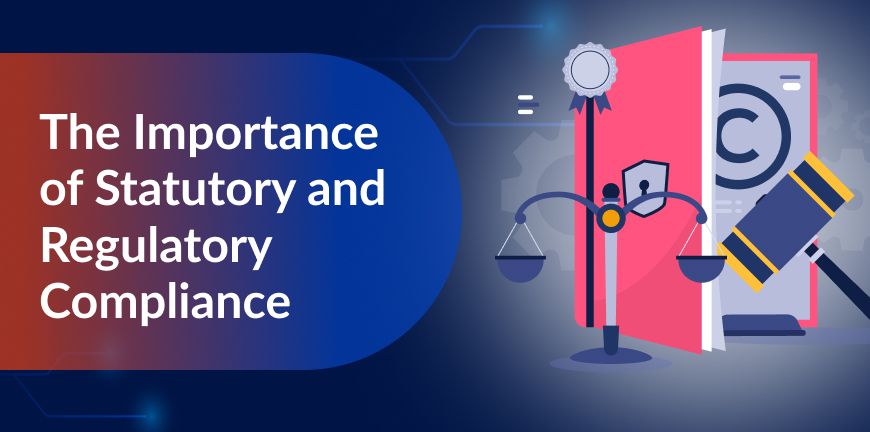
What is NAPS Scheme? Definition, Benefits & Eligibility
18/07/2023
Working with Authority Questioning Employees and Authority Hungry Managers
19/07/2023Your company is through a good three to four years. You championed a great start and followed it up with recruiting directly for your operations and other teams, though you saved a lot of money and time too. It was all great talent, everything just fell in place and everyone was happy; at least you thought so.
It was all hunky dory until one day nearly six years after the founding of your company, and hitting that magic $1 billion in profit for the year, NFRA officials marched in, demanded company records of payment of dues to the government, including the filing of taxes and remit of PF amounts to employee accounts.
You had a team of accountants in your accounting team handling everything, and you thought, ‘Nothing could go wrong, right?’. But it just did, when the NFRA officials informed you of the dues unpaid in the millions. Nothing could have gone wrong if only you had hired someone, especially for statutory compliance.
What is Statutory Compliance?
The pre-defined set of rules within which companies must function in a country is referred to as statutory compliance. These rules are derived from the legal framework in the country. It covers everything from how organizations operate to how they treat their employees. Since there are both state and central laws for statutory compliance, an organization in a state in India must comply with both national-level as well as state-level laws.
Why Statutory Compliance is Required?
Statutory compliance helps ensure that your employees are paid their PF on time, your company files the taxes and other contributions that it makes on behalf of the employee on time, and that employees are paid their health insurance and other policy-related benefits on time.
Without statutory compliance, these things would not happen on time, and you may be under the government’s scanner for evasion of tax and other compliance-related fraud. Several HR consulting companies today not only manage recruitment and payroll but also double up as statutory compliance watchdogs.
What is the Importance of Statutory Compliance in HR?
Statutory compliance is important to the government, the employees in an organization, and the employer. Statutory compliance in HR ensures that employees’ needs are taken care of and whatever is due to them is paid on time.
It helps employers live up to their brand name and the values of honesty and integrity. Statutory compliance in HR helps the government convince the people that they are being well taken care of and will improve its popularity.
What are the Responsibilities of Statutory Compliance?
There are several responsibilities for each of the stakeholders in an organization in statutory compliance. Some of them are:
- The auditor: He/she performs the audits on the accounts maintained by the company matching actual inventory to ensure that it is maintained honestly.
- The board of directors: They ensure that the reviews on compliance happen on time and without fail and act as ethics overseers.
- The head of finance: Is responsible for the financial reporting in the company and ensures that the accounting happens regularly and systematically.
- Senior management: They ensure that the general meetings of all the stakeholders happen regularly.
- Tax consultants: Tax consultants ensure that the taxes are paid on time by the company and that the TDS is calculated correctly.
List of Statutory Compliances for Companies in India
Employers must contribute towards the maintenance of statutory compliance. They must ensure that compliance happens regularly and that it is not a one-time thing. A list of statutory compliance practices to be followed mandatorily by companies in India are mentioned below:
1. Holding board meetings
The members of the board must meet at least four times a year, with the gap between two board meetings not exceeding 120 days.
2. Appointing an auditor
A chartered accountant must be appointed as the auditor of the company within a time frame of 30 days from the incorporation of the company.
3. Yearly general meetings
There must be general meetings held every year to discuss issues related to compliance and concerns of employees.
4. Issuing a share certificate
According to the Companies Act, a company must issue its share certificate within two months of the incorporation of the company.
5. Recording the minutes of meetings
Meeting minutes must be recorded by the company secretary in a very faithful manner to keep track of and for a consensus on issues.
6. Maintaining a book of accounts
A company, whether it is public, private, or private limited must maintain a book of accounts to ensure that its statutory compliance is on track.
7. Auditing the book of accounts
A company must carry out an audit every year they are not exempt from it by employing an expert and qualified auditor.
8. Circulating financial reports
The financial reports of the company must be circulated every year so that there is transparency regarding the financial transactions made by the company.
9. Filing forms with the Registrar of Companies
Certain forms must be filed with the Registrar of Companies. The forms to be filed depend on the state that the company belongs to.
10. Maintaining statutory registers
Statutory registers must be maintained which include members’ registers, board of directors registers, and registers of duplicate or renewed share certificates.
As the company grows in size, PF, attendance, labor law adherences, etc. also must be maintained by the company.
List of Statutory Compliance for Private Limited Company
1. Board Meeting
A board meeting must happen every 120 days at least. There must be at least 4 meetings a year regardless of the type of company.
2. General Meeting (AGM)
An annual general meeting must be convened within 6 months of the financial reporting of the company.
3. Appointment of an Auditor
An auditor must be appointed within 30 days of the registration of the company.
4. Director Disclosure
A full disclosure must be made of all the directors associated with the company.
5. Accounts to be Audited
This must happen within six months from the end of the financial year.
6. Filing of form MGT-7
The MGT-7 form must be filed within 60 days of the annual general meeting, which must be held at the end of the financial year.
7. Filing of Financial Statement (Form AOC-4)
The financial statement must be filed by the company every financial year with the registrar of companies.
8. Maintenance of Statutory Registers
Statutory registers, as mentioned earlier, must be maintained for a private limited company too.
How Do You Ensure Statutory Compliance?
When the government passes a law, it wants to ensure that companies do certain things.
Whether it is ensuring safety standards or promoting waste management, there are many ways
you ensure statutory compliance in business. Here’s how:
- Ensure your organization has all the required details of the statute and regulations. This
includes:
a) The name of the statute, regulation, or code that applies to your organization.
b) The date on which the law was passed or enacted.
c) The authority under which it was passed or enacted.
d) The format in which it is written (legislative-type or executive-type).
e) A description of how your business will comply with this law (e.g., what activities you
need to perform).
2. Ensure that employees understand their legal responsibilities, rights, obligations, and
liabilities due to their actions (if any). This can be done through training programs, education
materials, etc.
Closing Words
Statutory compliance is the golden word of the law for all employees. It is what ensures that they have a say, their rights are safeguarded, and that they have the freedom to discuss their concerns with employers, particularly decision-makers in the company. It is what they hold the governments to be accountable to, and what the governments must abide by. What are you doing about statutory compliance in your company?
Talk today to Alp Consulting to get your statutory compliance in order.





